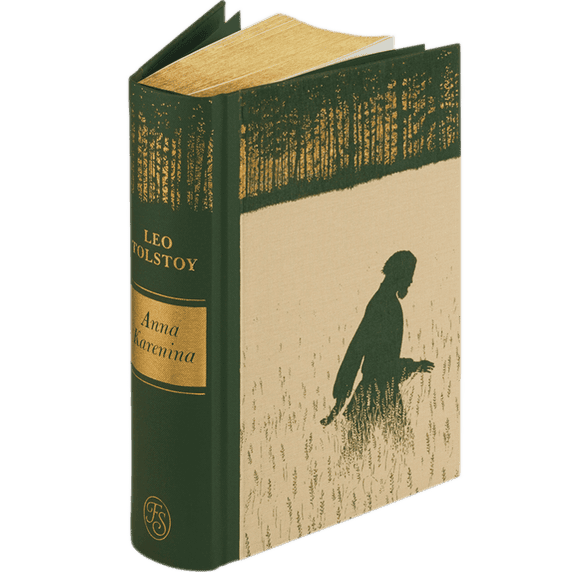
A high-society scandal rocks Moscow and St Petersburg in Leo Tolstoy’s masterpiece Anna Karenina. Angela Barrett illustrates this beautiful Folio collector’s edition, which is introduced by Helen Dunmore.
Introduced by Patti Smith
One of the greatest love letters ever written, De Profundis is newly introduced by Patti Smith and illustrated with archive photography in this exceptional Folio edition.
‘In all its urgency and ambiguous eloquence, it remains one of the greatest and most complex love letters ever written’
- Guardian
Published to mark the 125th anniversary of the beginning of Wilde’s imprisonment this striking edition is newly introduced by Patti Smith, and illustrated with images from the family archive. Sentenced to two years’ hard labour for his homosexual relations, Wilde plummeted from the heights of London society to bankruptcy, incarceration and indignity. His fall from grace was played out in a very public trial and his relationship with Lord Alfred Douglas (Bosie) became fodder for the popular press and gossipmongers. Penned in 1897, toward the end of his internment, De Profundis is one of the greatest love letters ever written. However, it is far more than a passionate entreaty: it charts Wilde’s humiliating downfall, the rejection of his indulgent lifestyle and a new religious awareness.
Full bound in blocked textured paper
Set in Lazurski with ChiQuel as display
176 pages
Frontispiece and 5 pages of photographs
Printed endpapers
Plain slipcase
8” x 5¼”
‘Surely men have suffered as much and more; you have noted that yourself, but what profits society in burrowing a jewel in a sewer?’
- Patti Smith, from her introduction
Newly commissioned for this edition, Patti Smith’s introduction is a love letter to Wilde as affecting and heartfelt as the book itself. As well as recounting her lifelong love of Wilde’s work, it is a lyrical ode to the senseless incarceration of a genius. Composed in the Parisian hotel where Wilde spent the final days of his life, its poignancy is heightened by the hindsight of a century.
Wilde began his prison sentence in Pentonville shorn and chained, walking the treadmill for six hours a day. When it became apparent that he wouldn’t survive this brutal regime, he was transferred to the more salubrious Reading Gaol. Physically and mentally broken but now resigned to his fate, it was here that Wilde wrote De Profundisand its existence is largely due to the benevolence of the prison governor. Aware of Wilde’s incredible talent and the cruelty of denying him a creative outlet, he stretched the rule stipulating that prisoners could write letters … and nothing else. Wilde was given paper and pen each morning, on the proviso that each day’s pages be collected at nightfall. The first and last of these pages have been reproduced as endpapers for our edition; a beautiful and intimate addition to what many regard as Wilde’s greatest work.
Of all the people who have ever crossed my life you were the one, and the only one, I was unable to influence in any direction
Bosie was feckless, hot-tempered and totally alluring. Incapable of resisting him, Wilde would pay the ultimate price for his desire: following his conviction Wilde lost everything and would never be allowed to see his two sons again, whom he adored. His imprisonment turned his love into bitterness and the tone of De Profundis captures this, as well as the extraordinary attachment he felt for Bosie. Despite the passage of a century, their relationship, and Wilde’s downfall and suffering, still fascinates and its concerns feel modern and recognisable.
Oscar Wilde was born in Dublin in 1854. He was educated at Trinity College, Dublin, and Magdalen College, Oxford, and while at Oxford he began to propagandise the new Aesthetic Movement. In 1884 he married Constance Lloyd, with whom he had two sons. He is best known for his novel The Picture of Dorian Gray (1891) and his social comedies, including A Woman of No Importance (1893), An Ideal Husband (1895) and The Importance of Being Earnest (1895). In 1895, Wilde was sentenced to two years’ imprisonment for ‘acts of gross indecency’, as a result of which he wrote The Ballad of Reading Gaol (1898) and De Profundis (1905). Following his release from prison in 1897 he lived in self-imposed exile in Europe. He died in Paris in 1900.
Patti Smith is a writer, performer and visual artist. She gained recognition in the 1970s for her revolutionary mergence of poetry and rock. Her seminal album Horses (1975) has been hailed as one of the top albums of all time. She was inducted into the Rock and Roll Hall of Fame in 2007. Smith’s books include Witt (1973), Babe (1978), The Coral Sea (1996), Woolgathering (1992), Auguries of Innocence (2005) and three books of memoirs, the National Book Award-wining Just Kids (2010), chronicling her relationship with artist Robert Mapplethorpe, M Train (2015) and The Year of the Monkey (2019). Patti has introduced the Folio editions of Wuthering Heights (2014), De Profundis (2020) and Faceless Killers (2023).
